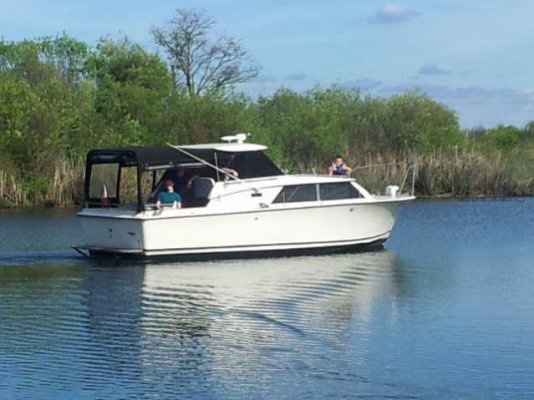Art-- The "when you least expect it, expect it" mantra is certainly true. The issue is that there is so much that can theoretically go wrong (with a boat, car, plane, horse, you name it) that if one spent the time and effort to attempt to ward off the "expect it" occurance, one would never get anything else done. Or put another way, boating would be akin to being a full-time mechanic/carpenter/plumber/electrician.
Now some people like that aspect of boating (or vehicles or whatever) and that's fine. In fact that's what some people want out of boating. Witness the fellow who spends years bringing or keeping a boat up to snuff in all respects, inside and out, but never actually goes out in the boat.
We have one of these in a boathouse near us. Twelve years, this boat has been worked on (it was in great shape when we first saw it). The hull is painted, stripped, painted again, windows are installed, removed, newer windows installed, and so on. Mechanically I'm told it's perfect. And this 50' boat has never been out of its boathouse except to travel a few hundred yards to the Travelift every couple of years for a haulout. But.... that's what the owner likes to do.
So for us, while we certainly believe the "when you least expect it..." saying, it's just something we choose to live with rather than endlessly chase.
As they say, "sh*t happens." It's one reason we have two engines under the floor, the theory being that sh*t might happen to one of them but the chances of it happening to both of them at the same time are so remote as to not even be a consideration.






 / Craig S
/ Craig S



